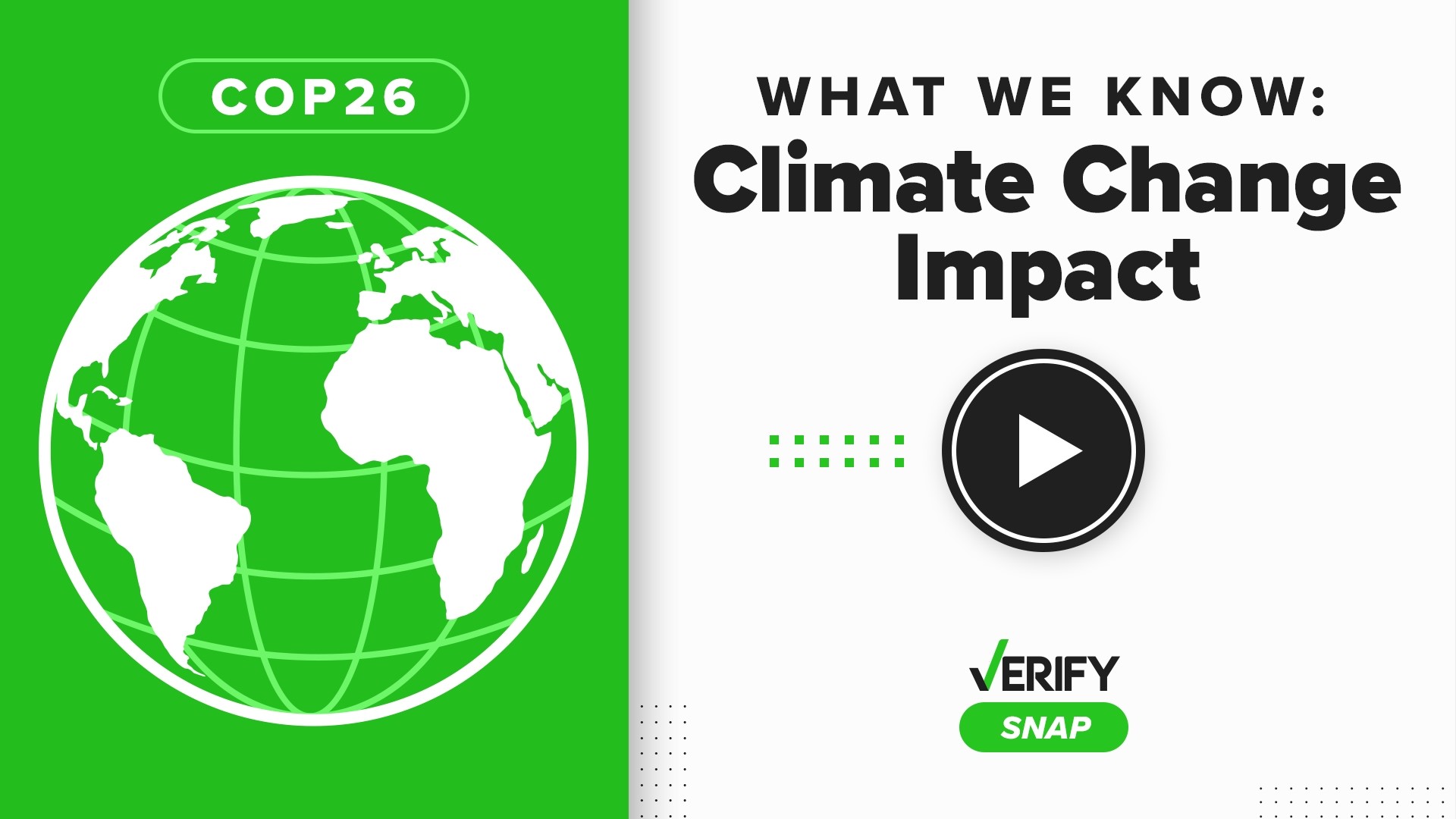The 2021 United Nations Climate Change Conference is currently underway in Glasgow, Scotland. For nearly three decades, the UN has brought together almost every country on Earth for global climate summits — called COPs, or “Conference of the Parties.” This year, the United Kingdom is hosting the 26th annual summit, hence the name COP26.
Several world leaders, including United States President Joe Biden, British Prime Minister Boris Johnson, French President Emmanuel Macron and Canadian Prime Minister Justin Trudeau, are in attendance. There are a few notable leaders who are opting out of the in-person gathering. Chinese President Xi Jinping and Russian President Vladimir Putin said they will participate virtually because of COVID concerns.
Organizers have set four goals for the COP26 summit. They include adapting to protect communities and natural habitats, mobilizing the money needed to reduce emissions, working together to foster collaboration and securing net-zero carbon emissions globally to limit the Earth’s warming.
The VERIFY team answered two questions related to COP26 as part of this week’s “VERIFY Snap” feature. You can watch the full video on our YouTube page or on our Snapchat channel.
THE QUESTION
Do scientists agree that the Earth has been warming ever since the Industrial Revolution?
THE SOURCES
- Intergovernmental Panel on Climate Change
- Yale Climate Connections
- Dr. Andrew Dessler, professor of geosciences at Texas A&M University
THE ANSWER
Yes, scientists agree that the Earth has been warming ever since the Industrial Revolution.
WHAT WE FOUND
The Intergovernmental Panel on Climate Change (IPCC), which conducts climate research for the United Nations, says it is critical that the Earth not warm more than 1.5 degrees Celsius. However, that requires major international cooperation, and right now, the world is nowhere near hitting that target.
“Right now, the world is on track for about 2.7 degrees Celsius and worrying about five degrees Fahrenheit above pre-industrial temperatures,” said Dr. Andrew Dessler, a professor of geosciences at Texas A&M University. “We want to try to get that below two degrees Celsius.”
The IPCC has identified two potential scenarios for global warming. In the first scenario, the planet warms by two degrees Celsius when compared to pre-industrial levels. In the second, with significant cooperation, countries are able to cap that increase at 1.5 degrees Celsius.
Many regions will experience an increased number of days that will reach dangerously high temperatures in the two-degree scenario. This, in turn, could trigger an array of disastrous weather events over time, like heavy precipitation and extreme droughts. A snowball effect will likely follow, as plants and animals die off, oceans rise, diseases spread, crops fail and people’s lives are threatened. Meanwhile, in the 1.5-degree scenario, temperatures will still rise, but the worst effects are prevented.
THE QUESTION
Is the world on track to meet the United Nations’ climate change goals by 2100?
THE SOURCES
THE ANSWER
No, the world is not on track to meet the United Nations’ climate change goals by 2100.
WHAT WE FOUND
In 2015, world leaders signed the Paris Climate Agreement. The treaty’s mission was to keep global warming below the two-degrees Celsius increase mark and keep 1.5 degrees Celsius within reach. Former President Donald Trump withdrew the U.S. from the agreement in 2020, but President Joe Biden opted back in when he came into office.
According to the UN, the world is currently not on track to meet this goal. In order to stay under the 1.5-degree mark, the UN says the world needs to halve emissions by the next decade and reach net-zero emissions by the middle of the century. If nothing changes, global warming could rise to three degrees Celsius by 2100 when compared to pre-industrial levels.
In order to prevent this type of catastrophic warming, countries must take aggressive measures to reduce carbon emissions. Ahead of COP26, countries were expected to submit documents detailing their plans for cutting emissions.
More from VERIFY: No, the volcano on La Palma in the Canary Islands will not cause a ‘mega tsunami’ as conspiracy theorists suggest

